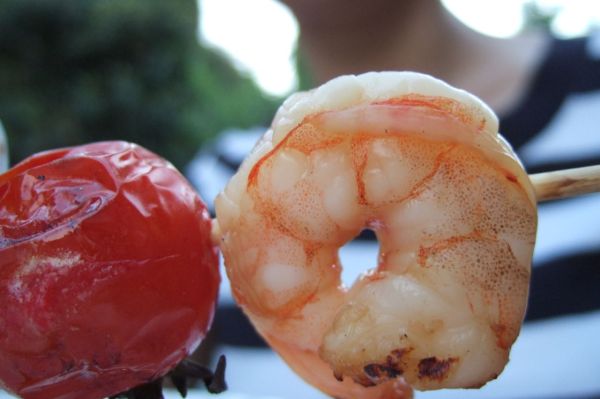Shiok Meats takes the cultured meat revolution to the seafood aisle with plans for cultured shrimp – TechCrunch

Rising consumer interest in alternative proteins and meat replacements has brought hundreds of millions of dollars to companies trying to grow or replace beef or chicken, but few companies have turned their attention to developing seafood alternatives.
Now Shiok Meats is looking to change that. The company has raised pre-seed financing from investors like AIM Partners, Boom Capital, and Ryan Bethencourt and is now part of the recent Y Combinator cohort presenting next week.
Co-founders Sandhya Sriram and Ka Yi Ling are both stem cell scientists working at Singapore’s Agency for Science, Technology and Research who decided to leave their cushy government posts for life in the fast lane of entrepreneurship.
The two have set themselves a goal of creating a shrimp substitute that would be similar to what’s typically found in the freezer section of most grocery stores — and a minced shrimp-replacement for use in dumplings.
There’s a huge market for seafood across the globe, but especially in Asia and Southeast Asia where crustaceans are a huge part of the diet. Chinese consumers alone account for the consumption of some 3.6 million tons of crustaceans, according to a 2015 study from the Food and Agriculture Department of the United Nations .
Shrimp cultivation as it stands is also a pretty dirty business. The industry is constantly being criticized for poor working conditions, unsanitary farms, and ancillary environmental damage. A blockbuster report from the Associated Press revealed instances of modern slavery in the Thai seafood industry.
“We chose to start with shrimp because it’s an easier animal to deal with compared to crabs and lobsters,” says Shriram. But the company will be expanding its offerings over time to those higher-end crustaceans.
Right now, the focus is squarely on shrimp. The company’s early tests have proved successful and the company estimates that it can make a kilogram of shrimp meat for somewhere around $5,000.
While that may sound expensive, it’s still much less than many of the lab-grown meat companies are pending to produce their replacement beef.
“We’re still relatively low compared to the other clean meat companies, which are still at hundreds of thousands of dollars,” says Ling.
The company is looking to bring its first product to market in the next three-to-five years and will initially target the Asia-Pacific consumer.
That means initially selling into their home market of Singapore and expanding into Hong Kong, India and eventually, Australia.
Source link
No comments: